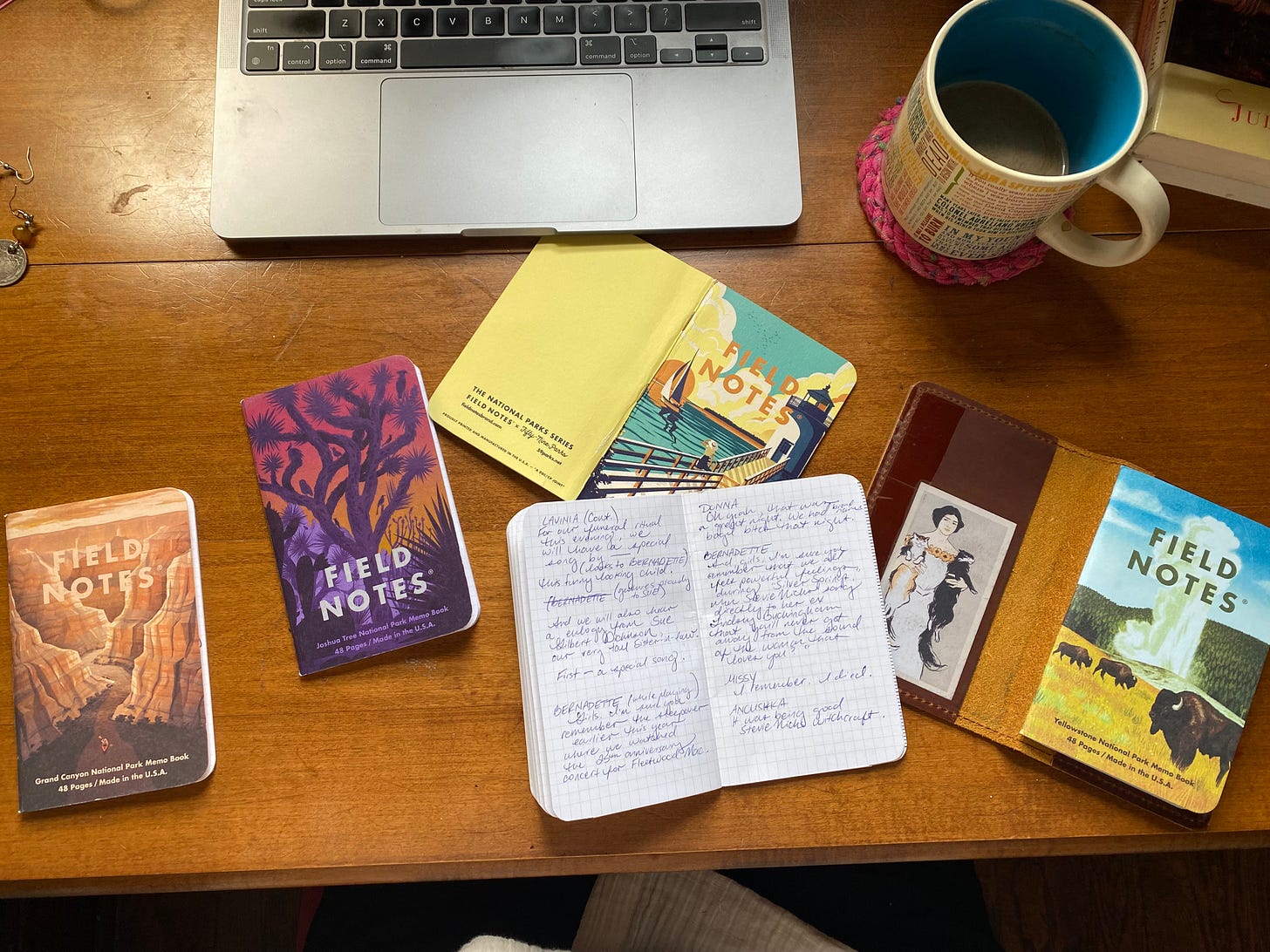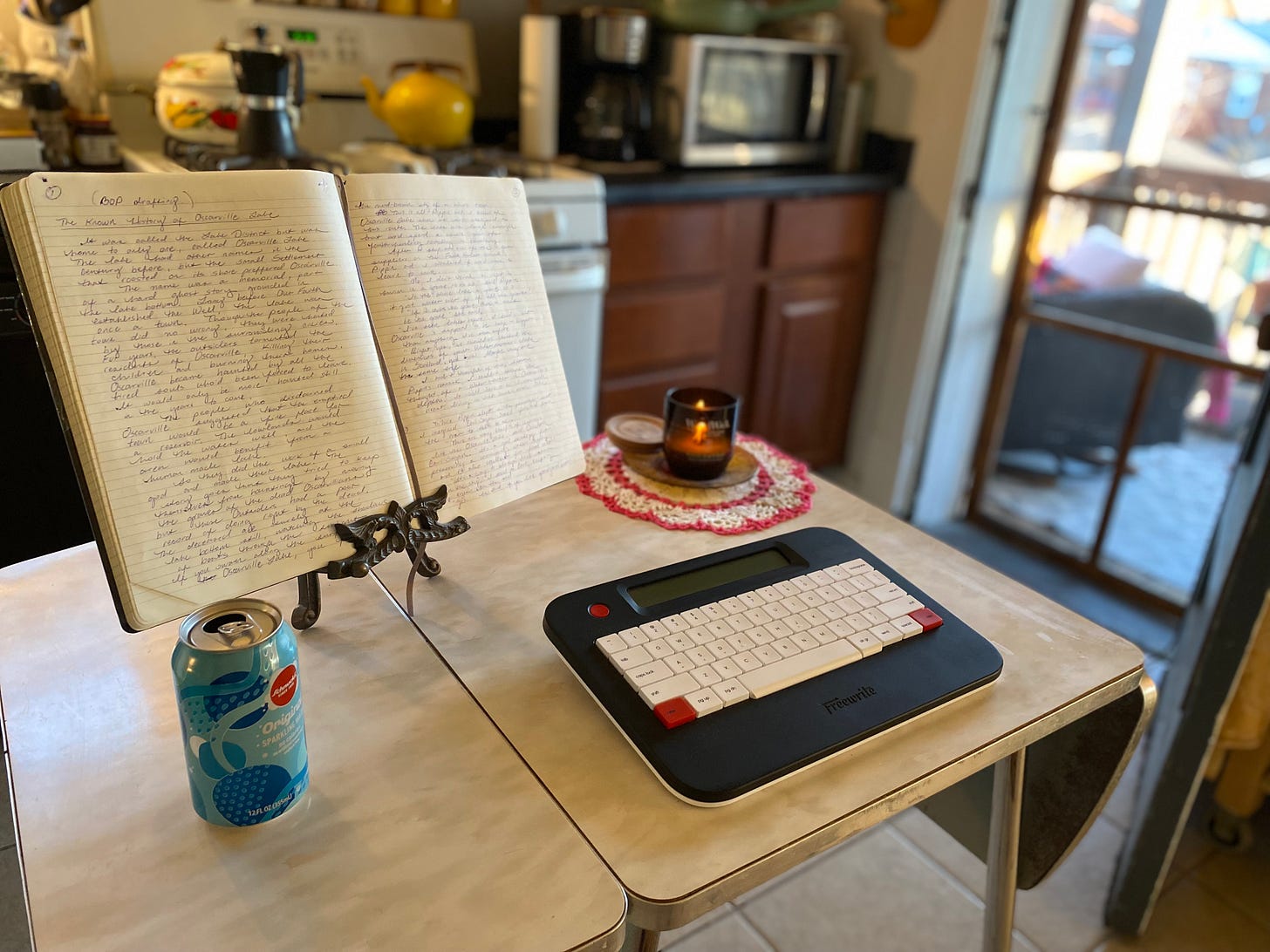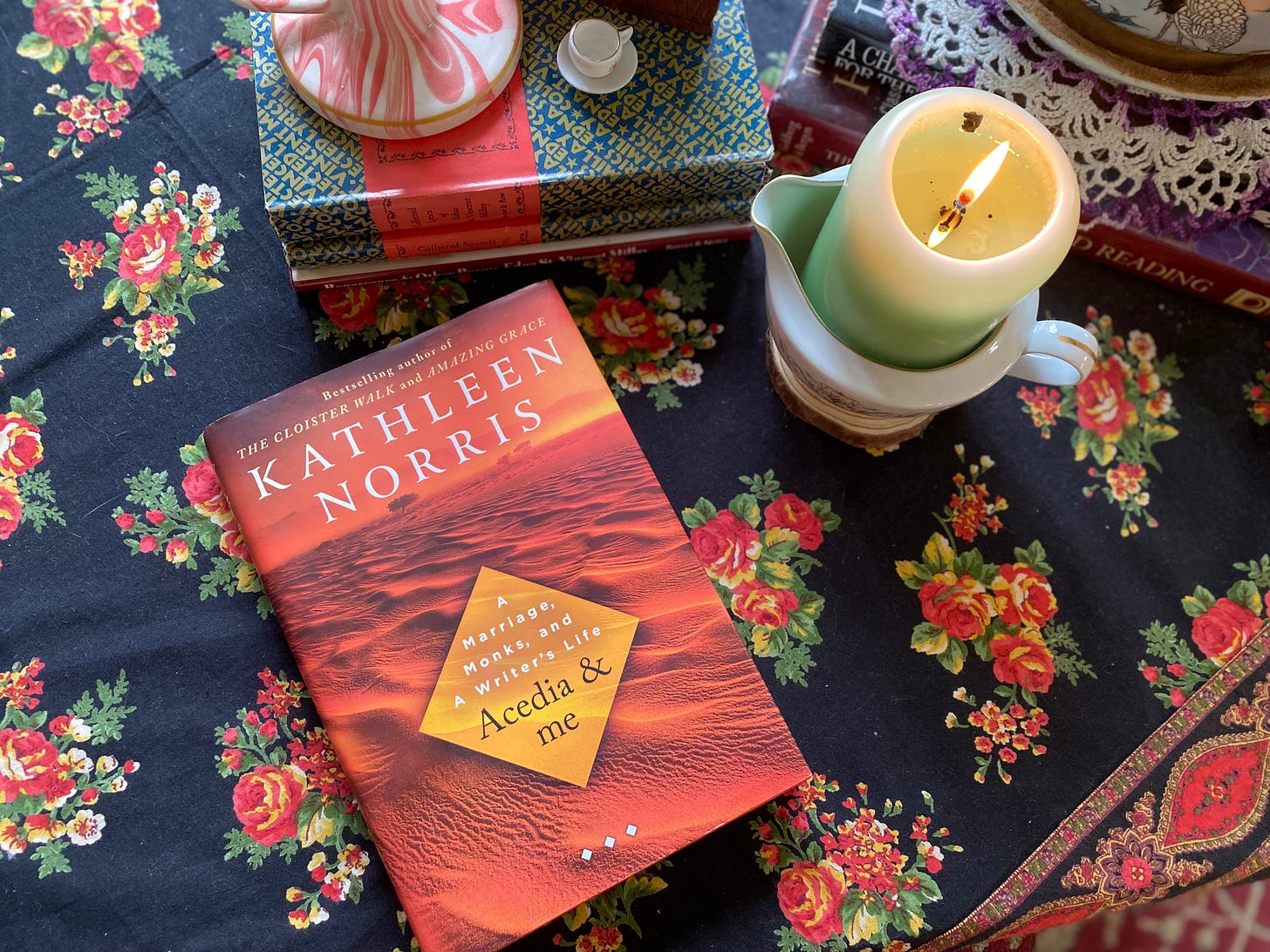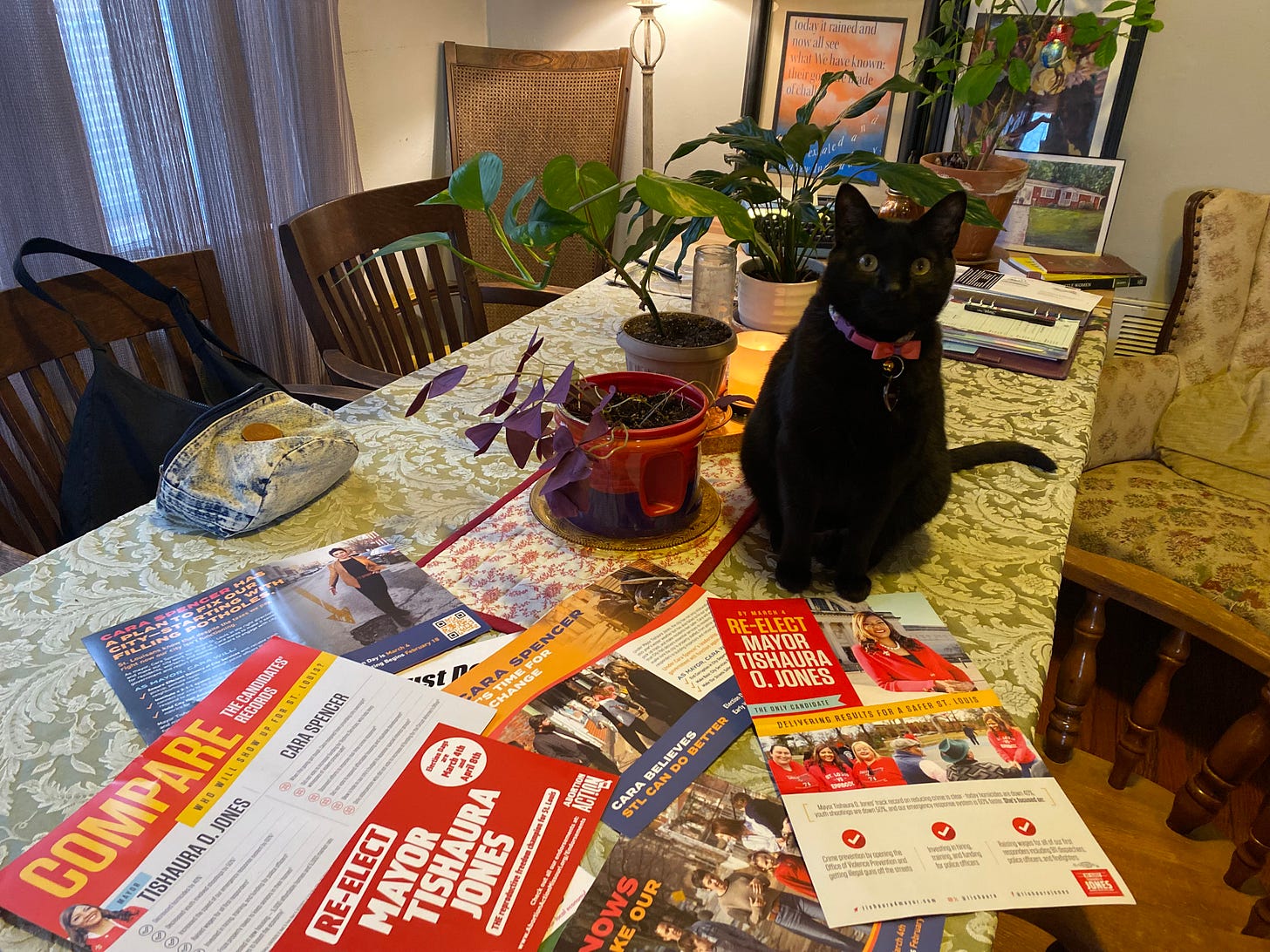Tomorrow we will be older.
A Letter from the Homestead recapping February. ✍️ Inside: writing a sleepover play, the moments when writing is most uncomplicated, and how I made money this month as a freelance creative.
Emily Dickinson called her Amherst home “The Homestead.” I lovingly call my apartment in St. Louis the same thing (though I definitely get out more than Dickinson). This monthly newsletter is my attempt to work through what it feels like to put down roots as a writer in my own Homestead.
Writing a millennial sleepover play set in 1997.
I am increasingly obsessed with the year 1997 while writing my new sleepover party play. The play is set on August 31, 1997— the day Princess Diana died. I wanted to pick a date to ground the play in a specific moment, despite the fact that the play is packed with anachronisms (the sleepover is hosted by Emily Dickinson).
I remember when Princess Diana died. I was having a sleepover at my friend Ginnie’s house (Ginnie had two American Girl Dolls), and we heard her mother scream from the other room. When we ran to the living room, we saw Ginnie’s mother crying on the couch— on the TV screen, a crystallized picture of Princess Diana’s face hovered over the footage of the crash and its aftermath.
As a millennial born in 1987, the death of Princess Diana is the first major world event I remember vividly.
While writing Wild Nights: a sleepover hosted by Emily Dickinson, during which we hope to see the Face of God (I know, the title is long!), I’ve been thinking about how 1997 was a kind of lynchpin year for my micro-generation. I was too young to see the Challenger explode on live TV, but the year 1997 was the beginning of a slew of highly televised events that stand out in my memory.
Princess Diana died in August 1997. Only a few months later, Titanic was released in theaters (I saw it four times). In early 1998, we learned of Bill Clinton’s relationship with his much younger intern. In 1999, the Columbine shootings occurred. In 2000, we wondered if the world would end. And in 2001, I sat in my eighth grade classroom and watched a plane hit the second tower in real time.
All of this to say, it’s interesting to me how my primetime adolescent memories coincide with better perceiving the world at-large. One of the refrains in the play is, “Tomorrow we will be older.” I think the year 1997 was when that refrain truly began for me.
What I’ve enjoyed the most about writing this sleepover play, though, is the nostalgia. It’s interesting to return to the rituals, the testing of boundaries, and the secret-telling of that intimate sleepover space. It’s kind of play about girlhood, but not in a universal sense.
It’s my girlhood, littered with Pop-Tart wrappers and sticky Dr. Pepper stains.
A short writing lesson from this month.
Every Friday these past two months, I sit for about twenty minutes in the men’s prison break room while I wait for my ride. (Rachel teaches at the women’s prison while I teach at the men’s, so I wait for her to pick me up after class.)
Those weekly twenty minutes have been the most productive writing moments of my year so far.
This is partly because I cannot bring my phone through prison security, so all I have is my little notebook. The break room is quiet and empty, and I’m aware that the security cameras would be suspicious if I just stared into space for twenty minutes— so instead, I bury my face in my notebook and write. I write for all of those twenty minutes, line-by-line working my way through the sleepover play.

I look forward to those twenty minutes. I’m energized after teaching and I’m glad to have a task to do while I wait for my ride. It’s reminding me that a play doesn’t get written in one big session (usually); a play happens in little bits of work, concentrated spots of time that slowly make up the whole.
If you are a writer, too, maybe this small lesson is a good reminder for you. Twenty minutes a week in an empty room can make a play, bit by bit.
What I’m reading this month…
Acedia & Me: A Marriage, Monks, and a Writer’s Life by Kathleen Norris. I mentioned this book in my last Secret Letters (for my paid subscribers). This is a great introduction to the ancient concept of “acedia.” This book hugs me during the winter sadness.
The Heidi Chronicles by Wendy Wasserstein. I’m going to be onstage again! And not inside a prison! Catch me in the ensemble of this play at the New Jewish Theatre this spring.
Cosmic Connections: Poetry in the Age of Disenchantment by Charles Taylor. When I was in grad school at Baylor, I went to a guest lecture by the philosopher Charles Taylor. We were in a particularly echoey hall and I couldn’t understand a single thing he said. I tried to read The Secular Age a couple of times and failed. Hoping to make it through this one a little easier since it’s about Romantic poetry.
Still in Dante’s Inferno. I’m determined to get out.
How I made money this month $$$

I believe freelance artists should be more upfront about how they support themselves financially, rather than maintaining the illusion they are fully supported by their art (they usually aren’t). This is me attempting to live out that principle. So, here are all the ways I brought in money to the Homestead for the month of February.
Teaching artist work for Prison Performing Arts. Teaching a weekly writing workshop on Zoom and teaching Spoken Word regularly for two men’s prisons. Also going to rehearsals for Little Women Town.
Playwright fee for The Lost Boys Family Reunion, my latest commission for Prison Performing Arts for the men’s prison in Pacific, MO.
Paid Substack subscriptions. Thank you to all of my paid subscribers. It means the world to me you make a financial contribution to my work.
Lent begins this week.
I love Lent. I love how its solemnity (“remember you will die”) coincides with the emergence of spring. I love how the best advice is to put your plants in the ground around Good Friday. I love fish fries. 🐠
Tomorrow we will be older.
Thank you, as always, for reading.
Yours,
Courtney, Mistress of the Homestead, and Old Linus and Noble Midge. 🐈 🐈⬛
P. S. Do you enjoy Letters from the Homestead? It would mean the world to me if you shared it with a friend.
And I’m always very grateful to paid subscribers, who help support my work.









